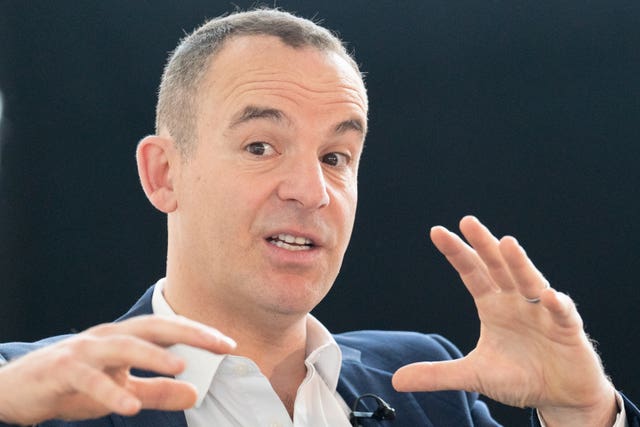Too many smart meters are broken, Martin Lewis tells Ed Miliband
Mr Lewis suggests shifting firms’ targets from installations to the overall number of ‘working’ smart meters.

Energy Secretary Ed Miliband has been urged to rethink the “dire” smart meter rollout to shift targets from installations to repairing faulty meters.
In a letter to Mr Miliband, MoneySavingExpert (MSE) founder Martin Lewis warns that “too many smart meters don’t work” and “word of mouth is often saying ‘don’t bother’”.
He suggests shifting firms’ targets from installations to the overall number of ‘working’ smart meters to incentivise firms to do both installations and repairs.
In a blog on his website, Mr Lewis wrote: “Complaints about smart meters are through the roof. Too many people tell me theirs are broken. Others refuse to have them and feel companies are forcing them.
“I’m generally in favour of the concept of smart meters, though I think the way they’ve been rolled out since the start has been dire.”

In his letter to Mr Miliband, he continues: “The industry can pump all the money it likes at marketing them, but when word of mouth is often saying ‘don’t bother’, it’s tough to shift the dial. I am regularly contacted by people asking: ‘What’s the best tariff I can get without having to fit a smart meter?’, as many who don’t have one now are willing to pay more to avoid getting one.”
A survey by MSE suggested that 19% of households with a smart meter said theirs did not work, including problems with in-home displays that will not communicate or connect, incorrect data on tariffs or usage, and prepay top-ups that do not register correctly.
Mr Lewis wrote: “Too many resources are focused on installations, not repairs, leaving more existing meters not working properly. Repairs can be slow, if they happen at all, leaving consumers frustrated and at risk of mis-billing and further problems.”
He added: “Smart meters, done right, offer an exciting future that should benefit energy security and enable innovative tariffs that can diminish peak usage, by incentivising people to shift usage to times when renewables are dominant – all of which should cut consumer costs. It’s just a shame the overly-long history of the smart meter roll-out is one of sloth, poor decisions, poor technology and over-expense.
“Shifting the target to ‘working’ smart meters could help give firms some wiggle room to get people back ‘online’, and in the long run, the hopefully improved word of mouth will lead more smart-meter-sceptics to decide they want to give it a go.”
Earlier this year, Citizens Advice warned that millions of households were missing out on the benefits of their smart meter due to faults and poor service from their supplier.
More than half of British homes now have a smart meter, but they are being let down by suppliers who are often “nowhere to be found” when problems arise with them, the consumer charity said.
It has called for new rules to ensure energy suppliers identify and fix problems as quickly as possible, saying it was particularly worried that people could end up with huge unexpected bills if their supplier is not able to take an automatic reading for an extended period of time.





